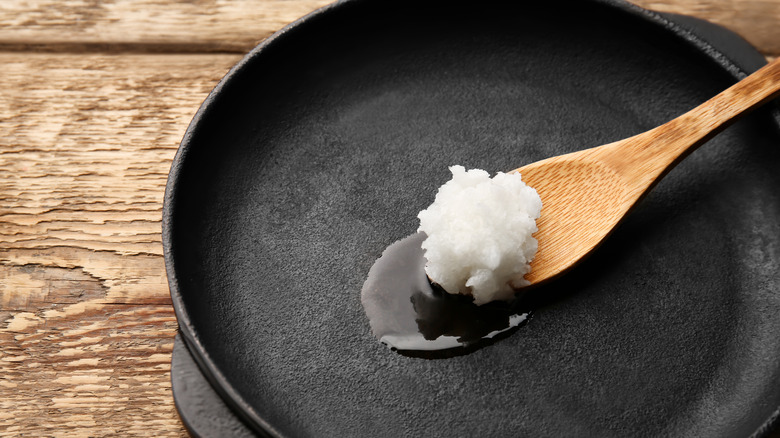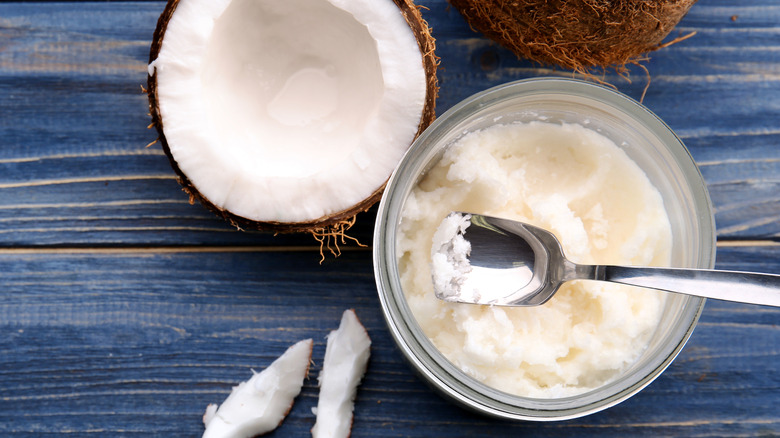The Reason Coconut Oil Is Considered A Superfood
Fat is bad, now only eat fat — if you're confused, join the club. On a daily basis, fat is alternately vilified and praised. On top of that, the various sources of fat, be it plant or animal, and their level of refinement is also a point of debate. Some oils get all the love, be it due to excellent marketing or a perceived superfood status. One prime example of that is coconut oil. We're going to take a closer look at it to understand why it is often highly regarded even though it is primarily composed of saturated fats, which have long been considered negative (via Mayo Clinic).
Without diving too deep into the chemistry of coconut oil, a bit more than half of its makeup is composed of medium-chain triglycerides (MCTs) compared to other dietary fats, which have a higher level of long-chain triglycerides, or LCTs (via Healthline). MCTs can be metabolized quickly by the body and used as a more immediate source of energy, which Healthline suggests makes them less likely to be stored as fat and can increase feelings of satiety. The outlet also notes that MCT fats are encouraged in ketogenic diets as they help the body enter a ketosis state, pushing it to burn fat.
It's important to note that many studies looking at these effects focus on 100 percent MCT oil, whereas coconut oil also contains some LCTs (via Harvard School of Public Health). Therefore, research is still in its early days, and generalizations and conclusive results are premature.
Should you switch to coconut oil?
An uncommon effect of coconut oil shows that it might increase levels of HDL cholesterol (the good kind), however, this is accompanied by a common response of saturated fats to increase the bad kind, LDL cholesterol (via Harvard School of Public Health). Accordingly, since coconut oil still behaves in many ways like other saturated fats, it's best in moderation as the American Heart Association recommends saturated fats comprising roughly five percent of your daily calories.
Besides using it in your cooking, coconut oil can have some advantages for external use. A study published in Dermatitis demonstrated that coconut oil can be successfully used as a moisturizer for dry skin (via PubMed). You can also put it on your hair with great results, including improvement of protein loss in hair, according to a study by the Journal of Cosmetic Science (via PubMed).
Like so many aspects of diet, it's important to eat a varied selection of foods to obtain the range of nutrients your body requires. Regardless of some of the perceived superfood characteristics of coconut oil, it is best to include it in your diet alongside unsaturated options, such as olive oil, to aim for balance. As the timeless saying goes, you can have too much of a good thing.

